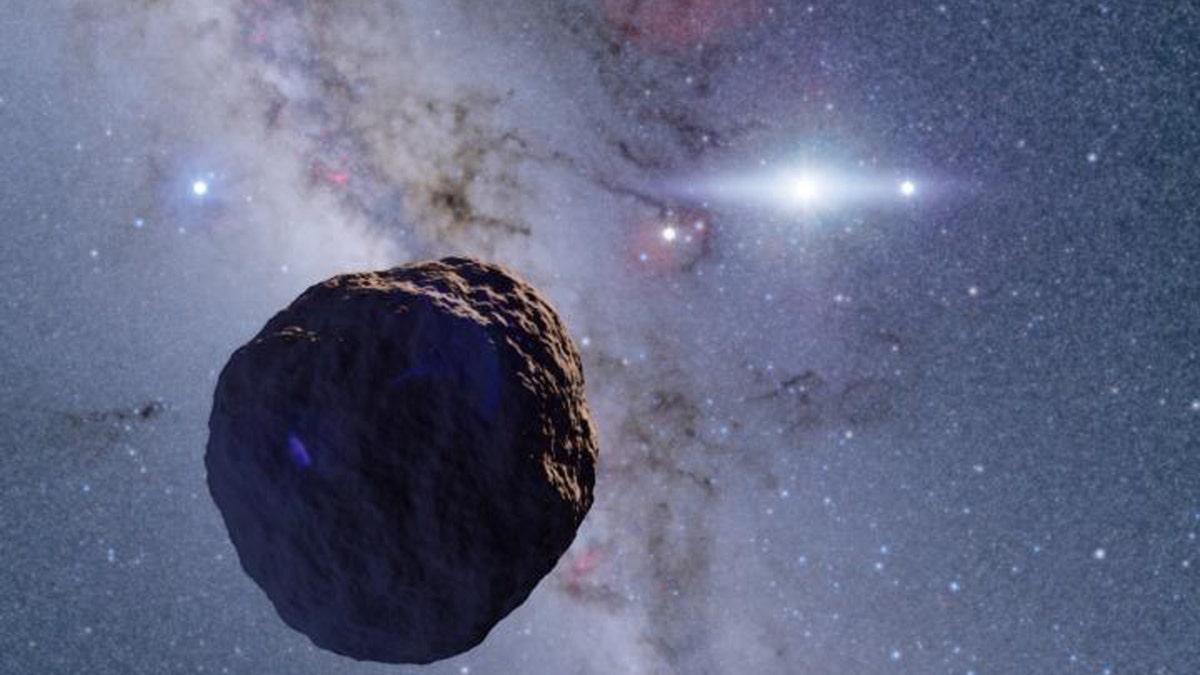
This is an artist's impression of the newly discovered object. (Credit: Ko Arimatsu)
Described as the "missing link," scientists have discovered an object in deep space they believe may hold the secrets to how planets are formed.
Known as a Kuiper Belt Object (KBO), the 0.8-mile-wide space rock was found inside the Kuiper Belt, an area of icy bodies far past Neptune. Given its size – significantly smaller than Pluto or Ultima Thule – these types of celestial bodies may be far more common than previously thought and provide clues on planetary evolution.
"If this is a true KBO detection, this implies that planetesimals before their runaway growth phase grew into kilometer-sized objects in the primordial outer Solar System and remain as a major population in the present-day Kuiper belt," the researchers wrote in the study. The results were published in a study in the scientific journal Nature Astronomy.
PLANET NINE MAY NOT EXIST BUT ANOTHER MYSTERIOUS OBJECT DEEP IN THE SOLAR SYSTEM COULD BE LURKING
According to the study, there may be as many as 60,000 of these mid-sized KBOs for every square degree of sky. The study's abstract adds that "these kilometer-sized KBOs are extremely faint, and it is impossible to detect them directly," and by "the monitoring of stellar occultation events," they can be discovered that way.
Ko Arimatsu, who lead the study, said they did not have much funding and looked for the aforementioned occulations, events that cause a dimness in the sky that could mean KBOs are passing in front of stars, to help find the object.
"This is a real victory for little projects," Arimatsu said in the statement. "Our team had less than 0.3 percent of the budget of large international projects. We didn't even have enough money to build a second dome to protect our second telescope! Yet we still managed to make a discovery that is impossible for the big projects."
RAIN SPOTTED ON SATURN'S MOON TITAN, WHICH MAY BE HOME TO ALIEN LIFE
Arimatsu added that the team intends to continue to look at the Kuiper Belt, as well as the still undiscovered Oort Cloud, which may contain trillions of icy objects, according to Space.com.
CLICK HERE TO GET THE FOX NEWS APP
Follow Chris Ciaccia on Twitter @Chris_Ciaccia








































